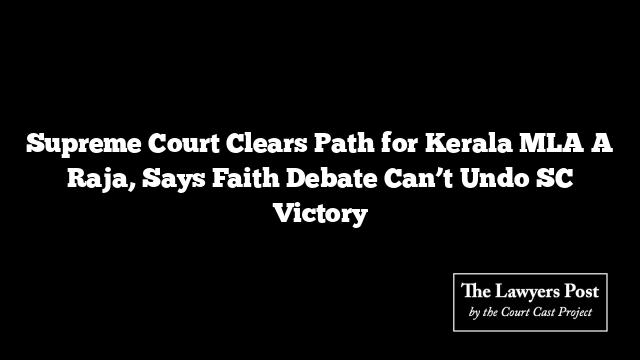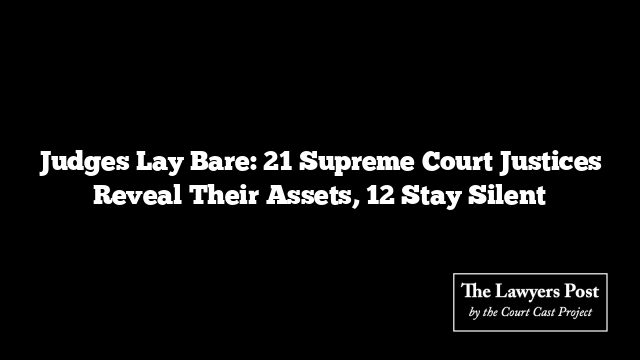In a sharp reversal of a controversial Kerala High Court ruling, the Supreme Court has upheld the election of Communist Party of India (Marxist) MLA A Raja from the Devikulam constituency, putting to rest a bitter dispute over caste, conversion, and constitutional identity.
At the heart of the legal wrangle was a challenge to Raja’s right to contest from a Scheduled Caste-reserved seat. The charge? That Raja, by virtue of being a Christian, had disqualified himself from eligibility. The apex court wasn’t convinced.
“This appeal is allowed,” declared a three-judge Bench comprising Justices Abhay S Oka, Ahsanuddin Amanullah, and Augustine George Masih, tossing out both the Kerala High Court’s 2023 verdict and the original election petition that tried to derail Raja’s legislative position. “He is entitled to hold the post from the beginning,” the Court affirmed, giving the CPI(M) leader a full nod of legitimacy.
The dispute originated when Congress candidate D Kumar, defeated in the 2021 State assembly polls by 7,848 votes, claimed that Raja—allegedly a Christian—was constitutionally barred from representing a constituency reserved for Scheduled Castes among Hindus in Kerala. He insisted the Representation of the People Act had been breached.
The High Court sided with Kumar, leaning on baptism records, CSI Church documents, and wedding photos to conclude that Raja was indeed practicing Christianity when he filed his nomination. The court said Raja had long abandoned Hinduism, and with it, his SC status under Kerala law.
But Raja took the fight to the country’s highest court, arguing that he belonged to the Hindu Parayan community—a Scheduled Caste in Tamil Nadu—and that his family’s religious identity had remained intact through migration to Kerala. He maintained he was never baptised and had not converted in any legal or spiritual sense.
The Supreme Court seemed more persuaded by Raja’s lineage than by photographic or church-based proof of religious practice. With the judgment copy still awaited, the ruling nevertheless marks a significant moment in India’s legal understanding of caste identity, religious practice, and electoral eligibility.
For now, A Raja walks back into the Kerala Assembly not just as an elected representative—but as one whose legitimacy has survived a crucible of faith and law.
Would you like a brief explainer on how the Representation of the People Act governs SC/ST reservations in elections?





